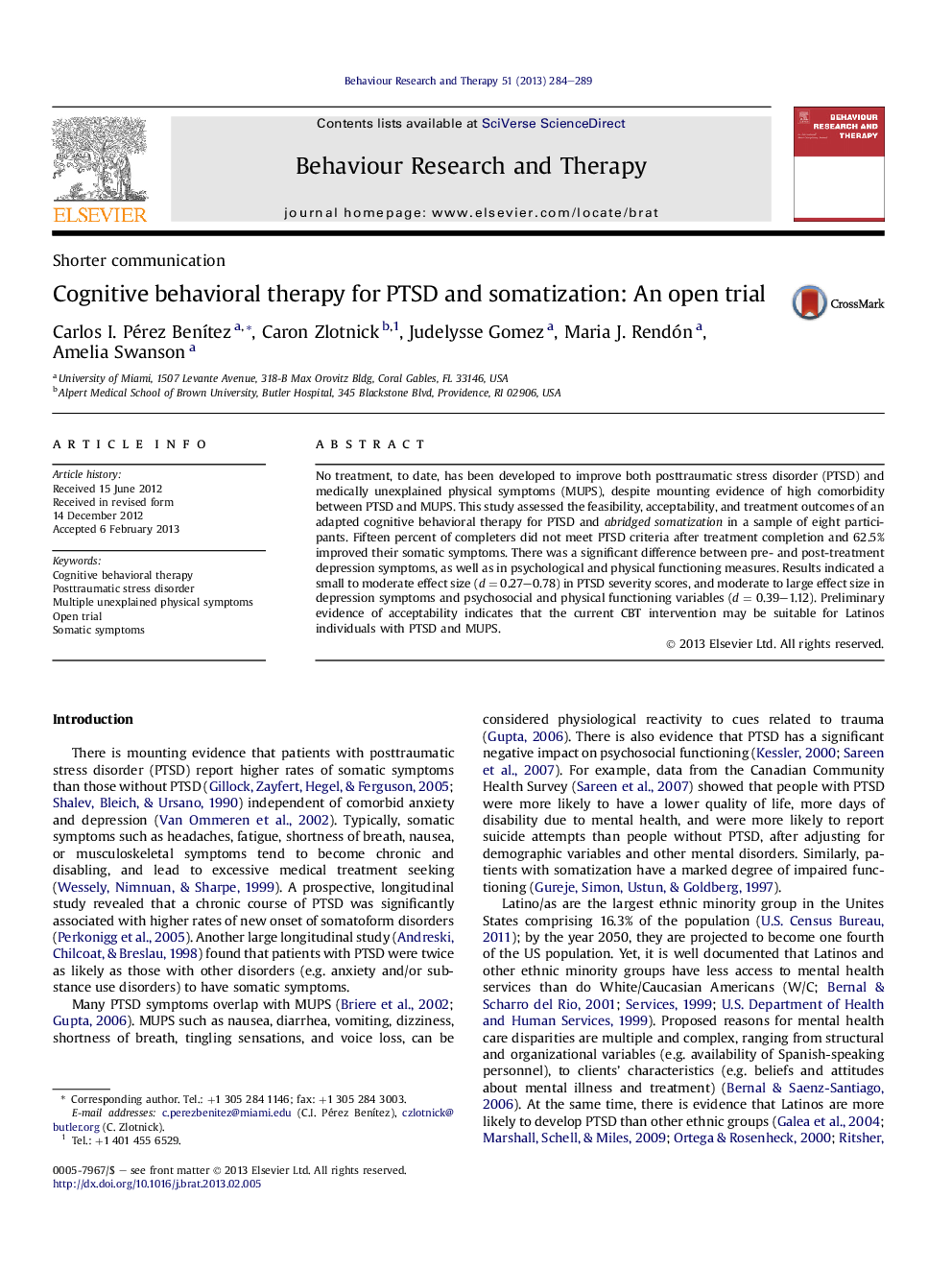| Article ID | Journal | Published Year | Pages | File Type |
|---|---|---|---|---|
| 901892 | Behaviour Research and Therapy | 2013 | 6 Pages |
No treatment, to date, has been developed to improve both posttraumatic stress disorder (PTSD) and medically unexplained physical symptoms (MUPS), despite mounting evidence of high comorbidity between PTSD and MUPS. This study assessed the feasibility, acceptability, and treatment outcomes of an adapted cognitive behavioral therapy for PTSD and abridged somatization in a sample of eight participants. Fifteen percent of completers did not meet PTSD criteria after treatment completion and 62.5% improved their somatic symptoms. There was a significant difference between pre- and post-treatment depression symptoms, as well as in psychological and physical functioning measures. Results indicated a small to moderate effect size (d = 0.27–0.78) in PTSD severity scores, and moderate to large effect size in depression symptoms and psychosocial and physical functioning variables (d = 0.39–1.12). Preliminary evidence of acceptability indicates that the current CBT intervention may be suitable for Latinos individuals with PTSD and MUPS.
► We treated 8 Latinos with PTSD and unexplained physical symptoms with an adapted CBT intervention. ► We found moderate effect size in PTSD symptoms reduction. ► We found moderate to large effect size in depression symptoms. ► We found moderate to large effect sizes in psychosocial/physical functioning variables. ► This treatment is a promising approach for PTSD and MUPS in a non-White population.
